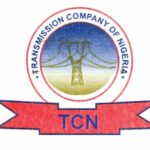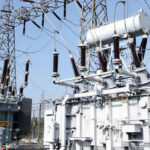The incessant collapse of Nigeria’s national grid represents a significant setback for Africa’s leading nation, undermining its reputation and highlighting systemic issues that demand urgent attention. The failures in the power supply not only disrupt daily life but also reveal the vulnerabilities of a country often regarded as the “Giant of Africa.”
The recurring blackouts have far-reaching implications, affecting industries, businesses, and households alike. As the most populous nation in Africa, Nigeria’s struggle to maintain a stable energy supply tarnishes its image as a beacon of progress and development.
Power outages disrupt economic activities, leading to substantial losses for businesses. This, in turn, exacerbates the challenges faced by an already fragile economy. The lack of reliable electricity hampers critical services such as healthcare, education, and security, emphasising the urgency of addressing this crisis.
Moreover, the instability of the national grid poses a significant threat to business survival. Frequent outages result in reduced productivity, spoilage of goods, and increased operational costs. Consequently, businesses are forced to adopt temporary measures such as alternative power sources and energy-efficient equipment to mitigate these effects. However, these solutions are not sustainable in the long term.
- Kwara bans commercial vehicles, okada, tricycles from Govt House road
- Sale of landed properties, chattels of liquidated Heritage Bank begins
The power crisis not only impacts individual businesses but also deters potential investors, both local and foreign. The instability of the national grid leads to reduced investor confidence, which can hinder economic growth and development. As businesses struggle with increased costs due to power failures, these expenses are often passed on to consumers, contributing to rising inflation. Ultimately, this cycle of economic strain diminishes the standard of living for many Nigerians, making it difficult for them to access basic amenities like healthcare, education, and clean water.
In addition to economic challenges, the power crisis also poses security risks. The darkness created by power outages can embolden criminal activities, further threatening the safety of citizens. Furthermore, the government’s revenue is adversely affected as businesses face reduced profits, leading to lower tax contributions.
To restore its standing as a leader in Africa, Nigeria must prioritise significant investments in its energy infrastructure. This includes modernising grid systems, upgrading existing infrastructure, and implementing effective maintenance practices. Transparency, accountability, and collaboration among stakeholders will be essential in finding lasting solutions to the national grid collapse.
Addressing the root causes of the power crisis is critical. This involves not only infrastructure upgrades but also increased investment in renewable energy and comprehensive policy reforms. Without decisive action, the situation is likely to worsen, leading to further economic losses, reduced quality of life, and increased brain drain as skilled Nigerians seek opportunities elsewhere.
The incessant collapse of Nigeria’s national grid is a national embarrassment for the Giant of Africa because we have no reason whatsoever to allow this to reoccur. However, with concerted efforts and strategic planning, Nigeria has the potential to overcome these challenges once and for all by prioritising a stable and efficient power supply; the country can restore its strength. The time for action is now; Nigerians cannot afford to continue living in darkness.
Auwal Anas Zakari, University of Maiduguri, Borno State

 Join Daily Trust WhatsApp Community For Quick Access To News and Happenings Around You.
Join Daily Trust WhatsApp Community For Quick Access To News and Happenings Around You.


